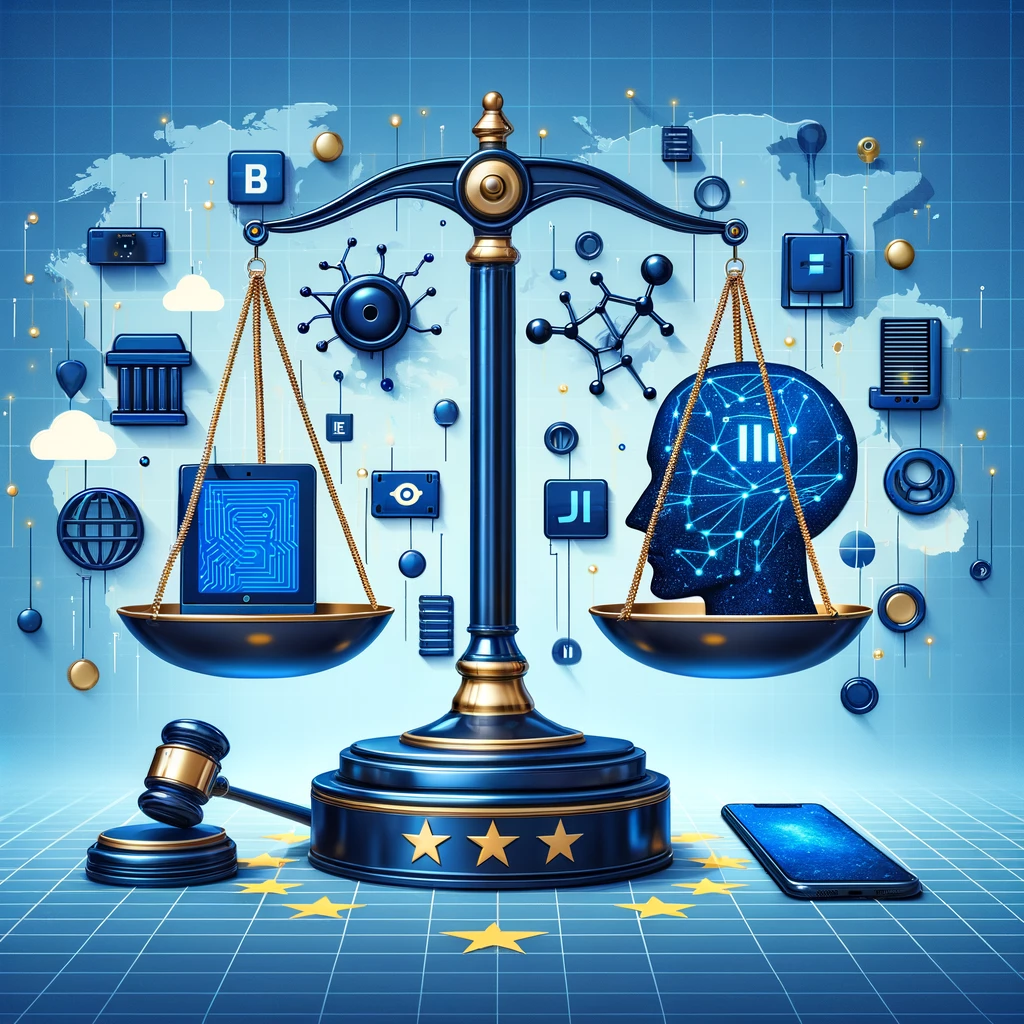In a bold move that underscores the growing importance of artificial intelligence (AI) in our lives, the European Union (EU) has taken a significant step forward. It is the first major body to pass the world’s first major AI regulation. This pioneering legislation, known as the AI Act, aims to create a comprehensive framework to govern the burgeoning field of AI. It also aims to establish clear boundaries for Big Tech companies. Let’s dive into the details of this landmark regulation, its implications, and what it means for the future of technology.
Table of Contents
- Introduction
- The Essence of the EU AI Act
- Immediate Implications for AI Applications
- The Stance on AI-Generated Content
- The Impact of the AI Act Beyond Europe
- The Takeaway
- FAQs
- Introduction
The EU’s legislative body has officially approved the first-ever AI regulation. This marks a significant milestone in the regulation of the fast-evolving technological landscape. Set to take effect in May, this comprehensive law categorizes AI technologies based on their risk levels, from “unacceptable” or fully banned applications to those considered low risk. With potential fines of up to 7% of annual revenue for non-compliance, the stakes are high for tech giants worldwide.

The Essence of the EU AI Regulation Act
In an effort the EU nitiated three years ago, in a pre-ChatGPT era, the EU’s ambitious project to regulate AI culminates in a rulebook that classifies AI technologies into various risk categories. This classification aims to safeguard citizens’ rights while fostering innovation and growth in the AI sector. The legislation’s primary goal is to ensure that AI development progresses within a framework that respects human rights and ethical standards.
Immediate Implications for AI Applications
Under the new law, certain AI applications that infringe on citizens’ rights will be outright banned. This includes using facial-recognition databases compiled from internet photos or CCTV footage and emotion-recognition software in the workplace. These restrictions signify a major shift in how AI technologies will be deployed. In the future, it aims to prioritize the protection of personal freedoms and privacy.
The Stance on AI-Generated Content
In an era where misinformation can spread rapidly, the AI Act mandates that AI-generated content must be clearly labeled. They hope that this will allow the public to distinguish it from human-generated content. This measure aims to curb the spread of “deepfakes” and ensure compliance with European copyright laws. The regulation poses new challenges for companies like Microsoft and OpenAI, which are already grappling with significant copyright infringement issues.
The Impact of the AI Act Beyond Europe
The AI Act is not just a European matter; its ramifications are global. Major tech firms, including Microsoft, OpenAI, and Meta, are actively involved in shaping these regulations and understanding their potential worldwide impact. Past EU regulations, like the Digital Markets Act and GDPR, have already set precedents for how US companies adapt their practices globally. The AI Act is poised to trigger similar widespread changes, influencing how AI technologies are developed, deployed, and governed worldwide.
The Takeaway
The EU’s AI Act represents a critical step towards establishing a balanced and comprehensive regulatory framework for artificial intelligence. By setting clear standards and expectations, the EU aims to ensure that AI development aligns with ethical norms and respects individual rights. These moves are not without detractors, and there are those who say the current regulation is not ready and filled with loopholes. However, this legislation could serve as a model for other regions, prompting a unified approach to AI governance globally.
FAQs
What is the EU AI Act?
The EU AI Act is the first major law worldwide that aims to regulate the development and application of artificial intelligence, categorizing technologies based on their risk levels.
What are the penalties for non-compliance?
Companies violating the AI Act may face fines of up to 7% of their annual revenue.
What types of AI applications are banned under this act?
The act bans AI applications that threaten citizens’ rights, such as unauthorized facial recognition databases and emotion recognition software used in workplaces.
How does the AI Act affect AI-generated content?
AI-generated content must be clearly labeled as such, and AI models must adhere to European copyright laws to prevent misinformation.
What global impact could the AI Act have?
The AI Act may influence global tech practices, as companies might implement changes worldwide to comply with the EU’s regulations.
The EU’s proactive stance on AI regulation sets a precedent for the global community, highlighting the need for ethical considerations and transparency in the development and use of artificial intelligence. As we move forward, it’s clear that these regulations will play a pivotal role in shaping the future of technology, not just in Europe but around the world.
Check out our other articles!
Ai in Primary Care with Google’s AMIE: The PCP of the Future
AI Solving Medical Error: Why AI is Important in Healthcare
Harnessing AI: Large Language Models Transforming Healthcare Delivery
Can AI Save Science? Healing the Wounds of Academic Publishing










